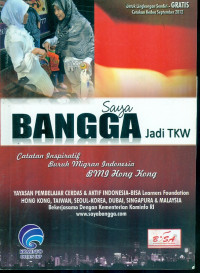
Text
Voices From the Regions : a Participatory Assessment of the New Decentralization Laws in Indonesia
Indonesia has embarked upon a radical and rapid decentralization program. Regional autonomy is transforming one of the most centralized countries in the world into one of the more decentralized ones. If managed well, a country as large and diverse as Indonesia will benefit greatly from decentralization, through more efficient service delivery, but also national unity and democracy. Yet, not all is well. The Consultative Assembly, the country’s highest constitutional body, has recognized as much by calling for a thorough evaluation of the decentralization program, and adjustments of the decentralization laws, if needed. Indonesia should use the process of revision as an opportunity to create a consensus on the type and extent of regional autonomy, and define better rules of the game to ensure that the benefits of decentralization will prevail. Indonesia’s Big Bang decentralization of 2001 went remarkably smooth. The preparation was ridden with problems, had to meet tight deadlines, and was far from completed by the time regional autonomy took effect. Within one year, the Big Bang decentralized much of the responsibility for public services to the local level, almost doubled the regional share in government spending, reassigned 2/3 of the central civil service to the regions, and handed over more than 16,000 service facilities to the regions. The country also implemented a new intergovernmental fiscal framework, which relied largely on a general grant rather than the earmarked grants of the past, and gave natural resource producing regions a share of the resource revenues. The country switched to a new accountability system at the local level, with the head of the region being elected by regional parliaments, which in turn are elected by popular vote. The dearth of implementing regulations at the outset of the program has gradually been resolved since then.
Availability
| KP XXI.000208 | KP XXI SUH v | My Library | Available |
Detail Information
- Series Title
-
-
- Call Number
-
KP XXI SUH v
- Publisher
- Jakarta : The United Nations Support Facility for Indonesian Recovery (UNSFIR)., 2000
- Collation
-
xii, 49 hlm. ; 27 cm.
- Language
-
English
- ISBN/ISSN
-
-
- Classification
-
KP XXI
- Content Type
-
-
- Media Type
-
-
- Carrier Type
-
-
- Edition
-
-
- Subject(s)
- Specific Detail Info
-
-
- Statement of Responsibility
-
-
Other version/related
No other version available
File Attachment
Comments
You must be logged in to post a comment
 Computer Science, Information & General Works
Computer Science, Information & General Works  Philosophy & Psychology
Philosophy & Psychology  Religion
Religion  Social Sciences
Social Sciences  Language
Language  Pure Science
Pure Science  Applied Sciences
Applied Sciences  Art & Recreation
Art & Recreation  Literature
Literature  History & Geography
History & Geography